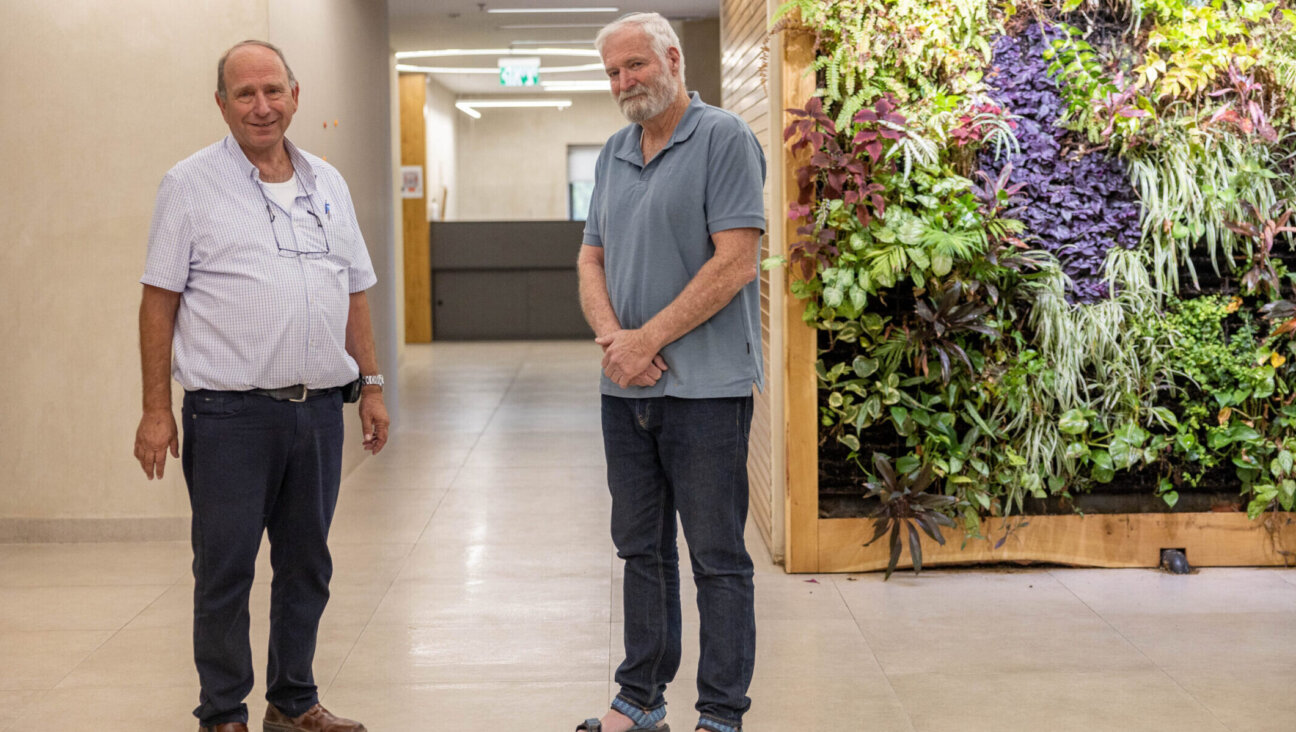Choosing Life, and Change
The Rabbinical Council of America, the leading body of Modern Orthodox rabbis, took a bold step last week with the issuance of a legal ruling that categorically bans smoking as a violation of the Torah.
The council’s boldness is not in accepting four decades of mounting medical evidence, but in letting the findings of modern science trump and overturn centuries of settled rabbinic law. In so doing, the members have struck a blow on behalf of the embattled “modern” part of Modern Orthodoxy.
The ban comes in a unanimous decision by the council’s nine-member Va’ad Halacha or religious law committee, which recently reconstituted itself after more than a decade of inactivity. The committee bases its 11-page ruling on the biblical commandment to preserve life and on various talmudic prohibitions against engaging in dangerous, life-threatening activity.
The teshuvah, or responsum, does not break new ground in the scientific or societal debate over smoking, as the authors openly admit. Their goal is not to weigh the medical evidence against smoking and prove its dangers, but rather “to show that given the medical knowledge of today, there is no basis in Halacha to permit smoking.”
Considering all that is known, they write, “our discussion should be short and simple, as numerous passages in the Talmud take it for granted that one may not engage in dangerous or unhealthy activities.” But that would overlook the realities of Orthodox rabbinic culture, in which the rulings of the revered sages of the past frequently hold greater sway than the discoveries of modern society. As it happens, some major luminaries have ruled in favor of permitting smoking, notably Rabbi Moshe Feinstein, whose death in 1986 has not dimmed his reputation as the greatest rabbinic authority of his age. Feinstein, the Rabbinical Council authors note, issued a ruling on Hanukkah in 1964, “within months of the release of the famous Surgeon General’s report,” arguing that while smoking is not “preferable,” it is not “strictly forbidden by Halacha.”
Feinstein’s reasoning was twofold. First, he argued that many people smoke and are unharmed, suggesting that “G-d must be protecting these people” — a claim that is, in traditional terms, tantamount to saying the science is inconclusive. Second, and tougher to dispel, Feinstein noted that many great scholars of the past had smoked, “making it impossible for us to say that such an activity is forbidden.”
The law committee’s response to Feinstein is similarly twofold. In reply to the first argument, about God’s protection, it shows how medical knowledge of the risks of smoking has grown since the first Surgeon General’s report of 1964. It is now known, the committee writes, quoting a 2004 report from the Centers for Disease Control, that tobacco use is “the leading preventable cause of death in the U.S.,” responsible for “about 1 of every 5 deaths each year.”
As to Feinstein’s second point, the authors go back to tradition to show that scholars have been divided for years over risky behavior, and specifically over smoking. They tackle and dismiss arguments that addicts are not responsible for their behavior and that rabbis should hesitate before banning popular activity, for fear of being ignored. In the end, they write, “this analysis must lead to the unambiguous conclusion that smoking is clearly and unquestionably forbidden by Halacha.”
It’s clear from their writing that they expect a fight, and not just from smokers and tobacco manufacturers. They’ll be attacked by forces to their right who will ask which side of the great divide they are on.
Orthodoxy prides itself on being a countercultural force in modern society, standing against the tide and marching to its own drummer. At its best, that tendency allows the community to live by its own set of time-tested values, frequently preserving its members from the worst vices of our day. At its worst, it can lead to a close-mindedness in dealing with important and even valuable challenges when they come from outside the cloistered world of Torah.
In reconstituting its religious law committee — and mandating it explicitly to deal with issues like organ transplantation and time-of-death issues — the Rabbinical Council of America has set its face forward. We wish them success.
A message from our CEO & publisher Rachel Fishman Feddersen

I hope you appreciated this article. Before you go, I’d like to ask you to please support the Forward’s award-winning, nonprofit journalism during this critical time.
We’ve set a goal to raise $260,000 by December 31. That’s an ambitious goal, but one that will give us the resources we need to invest in the high quality news, opinion, analysis and cultural coverage that isn’t available anywhere else.
If you feel inspired to make an impact, now is the time to give something back. Join us as a member at your most generous level.
— Rachel Fishman Feddersen, Publisher and CEO























